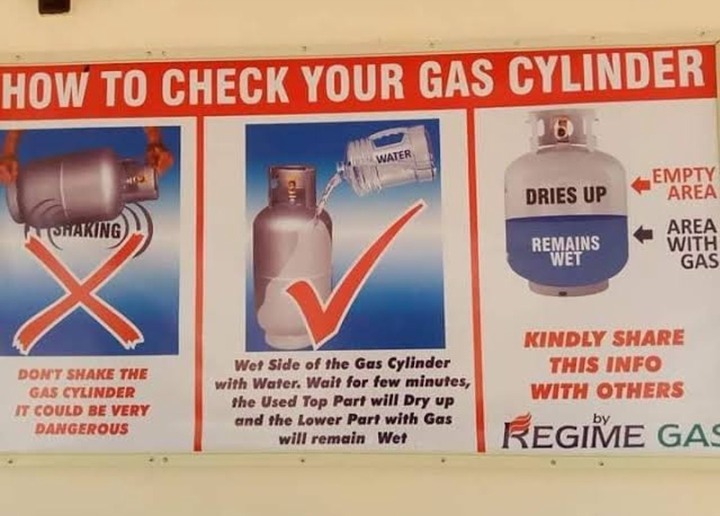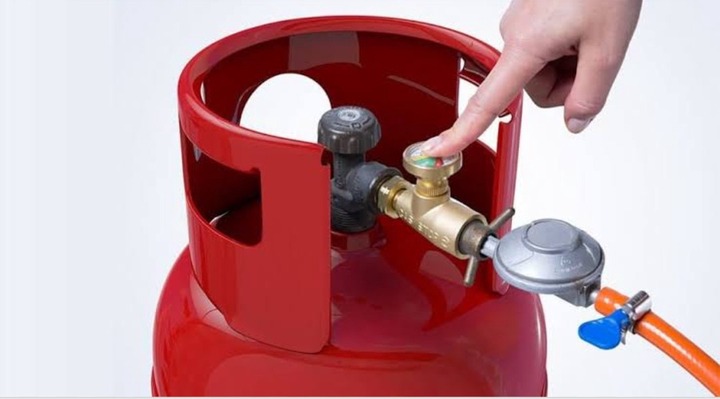Whatever that has an advantage has a disadvantage. The world is experiencing rapid growth in technology, and its side effect should not be overlooked. Gas is one of the fastest means of cooking, although the disadvantageous side of using Gas for cooking should not be underestimated.
Considering the high number of gas users and the disasters it has caused in a couple of months now, an expert has provided few basic safety tips here to help avert gas cylinder explosion
Here are a few tips on how to prevent gas cylinder explosion. Domestic gas cylinder if not well handled can lead to fatal accidents such as explosions. Therefore learning how to prevent gas cylinder explosion is important.
3 things to check to detect a gas leak
Gas cannot be seen, but it can be smelt. However, there are other ways where you can detect a gas leak.
(a) smell of rotten eggs or sulfur. (An odorant is added to natural gas and propane gas to help homeowners/customers sniff out leaks).
(b) If your flame is orange or yellow instead of blue and leaves soot on your cooking appliances
(c) Listen to identify a hissing sound from your gas connection or the banner.
How to prevent gas leak
(a) Buy and install carbon monoxide detectors near combustion appliances.
(b) Move or get rid of any paper (e.g., newspaper, packaging materials), household wood products, or anything else that can easily catch fire that are near your gas, propane, or oil appliances. (c) Use gas cylinders in a vertical position, unless specifically designed to be used otherwise.
(c) Use gas cylinders in a vertical position, unless specifically designed to be used otherwise.
(d) Do not drop, roll or drag gas cylinders.
(e) Close the cylinder valve and replace dust caps, where provided when a gas cylinder is not in use.
(f) Where appropriate, fit cylinders with residual pressure valves (non-return valves) to reduce the risk of back flow of water or other materials into the cylinder during use that might corrode it (e.g. beer forced into an empty gas cylinder during cylinder change-over).

 Entertainment6 days ago
Entertainment6 days ago
 Health1 week ago
Health1 week ago
 Health4 days ago
Health4 days ago
 Football1 week ago
Football1 week ago
 Football1 week ago
Football1 week ago
 Crime5 days ago
Crime5 days ago
 Education6 days ago
Education6 days ago
 Health6 days ago
Health6 days ago

